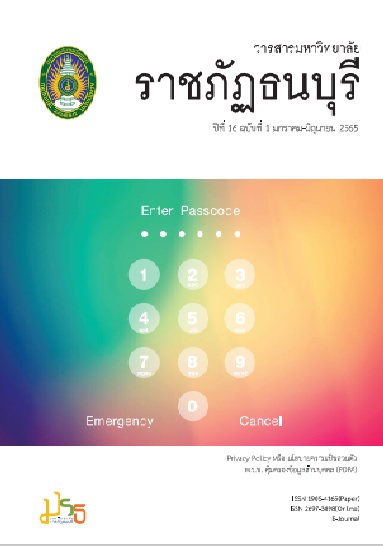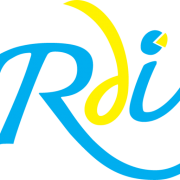Motivation and Self-Esteem Influencing Conducting Research among English Lecturers in Private Higher Education Institutions, Bangkok Metropolitan Region
Keywords:
motivation, self-esteem,conducting, researchAbstract
The objectives of this research were to study motivation, self-esteem, and motivation and self-esteem influencing conducting research among the English lecturers in private higher education institutions in Bangkok Metropolitan region. The samples are 175 English lecturers in private higher education institutions in Bangkok Metropolitan region determined by Yamane’s formula from a population of 4,020 by using a simple random sampling method. The instrument used for collecting data was the five-point rating scale questionnaire. The content validity of the instrument was analyzed by three experts, and the Cronbach’s Alpha coefficient (.961) was used to investigate the reliability value. The statistics used for analyzing data were mean, percentage, and standard deviation. Pearson’s correlation coefficient and Stepwise Multiple Regression Analysis were also used to explore the relations between motivation and self-esteem and conducting research among the lecturers. The results of this research were 1) there were three kinds of motivation influencing conducting research: Achievement Motive, the awareness of research as a tool indicating self-development; Affiliation Motive, the appreciation of doing a job without making any argument; and Power Motive, the need of making self-reputation as higher education lecturers, 2) the self-esteem included having a good attitude towards oneself and work performance which was the confidence of doing a good job as higher education lecturers, and seeking for career advancement which was the determination to not give up applying for research grants, and 3) Multiple Regression Analysis with 96.20 percentage reflected that motivation and self-esteem affected conducting research among the English lecturers in private higher education institutions in Bangkok Metropolitan region.
Downloads
References
กระทรวงศึกษาธิการ. (2561). มาตรฐานการศึกษาแห่งชาติ พ.ศ.2561. ค้นเมื่อ 13 กันยายน 2564, จาก https://cadt.dpu.ac.th/upload/content/files/%E0%B8%A1%E0%B8%B2%E0%B8%95%E0%B8%A3%E0%B8%90%E0%B8%B2%E0%B8%99%E0%B8%81%E0%B8%B2%E0%B8%A3%E0%B8%A8%E0%B8%B6%E0%B8%81%E0%B8%A9%E0%B8%B2%E0%B8%82%E0%B8%AD%E0%B8%87%E0%B8%8A%E0%B8%B2%E0%B8%95%E0%B8%B4%202561.pdf.
กฤศวรรณ ประเสริฐสิทธ. (2557). ปัจจัยที่ส่งผลต่อแรงจูงใจใฝ่สัมฤทธิ์ทางการเรียนวิชาคณิตศาสตร์ของนักศึกษาคณะวิทยาศาสตร์และเทคโนโลยี มหาวิทยาลัยกรุงเทพ. วารสารวิชาการมหาวิทยาลัยธนบุรี. 8(17), น.90-101.
ชนิตา เศษลือ. (2556). แรงจูงใจในการทำงานกับพฤติกรรมการเป็นสมาชิกที่ดีขององค์กรของครูโรงเรียนในเครือสารสาสน์. วารสารการบริหารการศึกษา มหาวิทยาลัยศิลปากร. 4(1), น. 24-32.
ชัชวาล อรวงศ์ศุภทัต. (2552). แรงจูงใจในการทำงาน. ค้นเมื่อ 5 ตุลาคม 2564, จาก https://www.tpa.or.th/writer/read_this_book_topic.php?bookID=1338&read=true&count=true
พระราชบัญญัติการศึกษาแห่งชาติ พ.ศ. 2542 แก้ไขเพิ่มเติม (ฉบับที่ 2) พ.ศ.2545. (2545). ค้นเมื่อ 30 กันยายน 2564, จาก https://www.sesao30.go.th/module/view.phpacafile=5cc7dd2d935eb_%E0%B8%9E%E0%B8%A3%E0%B8%9A.%E0%B8%81%E0%B8%B2%E0%B8%A3%E0%B8%A8%E0%B8%B6%E0%B8%81%E0%B8%A9%E0%B8%B2%E0%B9%81%E0%B8%AB%E0%B9%88%E0%B8%87%E0%B8%8A%E0%B8%B2%E0%B8%95%E0%B8%B4(%E0%B8%89%E0%B8%9A%E0%B8%B1%E0%B8%9A%E0%B8%97%E0%B8%B5%E0%B9%882)%202545.pdf
วลัยพรรณ พรไพรสาร. (2557). ความสัมพันธ์ระหว่างแรงจูงใจใฝ่สัมฤทธิ์กับประสิทธิภาพการทำงานของพนักงานในโรงงานอุตสาหกรรม กลุ่มอะไหล่รถยนต์ จังหวัดนครราชสีมา. การศึกษาค้นคว้าอิสระหลักสูตรบริหารธุรกิจมหาบัณฑิต. มหาวิทยาลัยราชมงคลอีสาน.
สำนักงานคณะกรรมการอุดมศึกษา. (2564). ทำเนียบผู้ดำรงตำแหน่งทางวิชาการแห่งชาติ. ค้นเมื่อ 20 ตุลาคม 2564, จาก http://www.nap.mua.go.th/FacultyRecord/Report/University/Summary.aspx
สุทธิวรรณ ตันติรจนาวงศ์. (2560). ทิศทางการจัดการศึกษาในศตวรรษที่ 21. ค้นเมื่อ 16 กันยายน 2564, จาก https://he02.tci-thaijo.org/index.php/Veridian-E-Journal/article/view/109763
สุธนี ลิกขะไชย. (2555). ผลของการใช้โปรแกรมต่อการเห็นคุณค่าในตนเองของนักเรียนชั้นมัธยมศึกษาปีที่ 1-3 โรงเรียนลอยสายอนุสรณ์ สำนักงานเขตลาดพร้าว กรุงเทพมหานคร. ปริญญาการศึกษามหาบัณฑิต สาขาวิชาจิตวิทยาการแนะแนว. มหาวิทยาลัยศรีนคริทรวิโรฒ.
อภิวัฒน์ แก่นจำปา. (2560). การเห็นคุณค่าในตนเองของเด็กและเยาวชนที่กระทำความผิดในศูนย์ฝึกและอบรมเด็กและเยาวชนภาคตะวันออก. วิทยานิพนธ์สังคมสงเคราะห์ศาสตรมหาบัณฑิต. มหาวิทยาลัยธรรมศาสตร์.
อรพินทร์ ชูชม, อัจฉรา สุขารมณ์ และวิลาสลักษณ์ ชัววัลลี. (2554). การพัฒนาแบบวัดแรงจูงใจภายใน. วารสารพฤกรรมศาสร์. 6(1), น. 83-96
อัญชลี สนพลาย และภควรรณ ลุนสำโรง. (2564). แรงจูงใจในการปฏิบัติงานของครูในสถานศึกษาสังกัดสำนักงานเขตพื้นที่การศึกษา ประถมศึกษาเพชรบุรี เขต 1. การประชุมวิชาการระดับชาติ วิทยาลัยนครราชสีมา. (8), น. 241-251.
Baumeister, F. Roy. Campbell., et al. (2003). Does High Self-Esteem Cause Better Performance, Interpersonal Success, Happiness, or Healthier Lifestyles?. Phycological Science in the Public Interest. 1(2003) from https://journals.sagepub.com/doi/10.1111/1529-1006.01431
Horodnic, Alexandra. Ioana., Zait, Adriana. (2015), Motivation and research productivity in a university system undergoing transition. Research Evaluation: 24(3). 2015.
Trujillo, Andres. Carlos. (2007). Building Internal Strength, Sustainable Self-Esteem, and Inner Motivation as a Researcher. Journal of Research Practice: 3 (1), 2007, pp. 1-9.
Downloads
Published
How to Cite
Issue
Section
License

This work is licensed under a Creative Commons Attribution-NonCommercial-NoDerivatives 4.0 International License.
บทความที่ได้รับการตีพิมพ์เป็นลิขสิทธิ์ของ มหาวิทยาลัยราชภัฏธนบุรี
ข้อความที่ปรากฏในบทความแต่ละเรื่องในวารสารวิชาการเล่มนี้เป็นความคิดเห็นส่วนตัวของผู้เขียนแต่ละท่านไม่เกี่ยวข้องกับมหาวิทยาลัยราชภัฏธนบุรีและบุคลากรท่านอื่นๆในมหาวิทยาลัยฯ แต่อย่างใด ความรับผิดชอบองค์ประกอบทั้งหมดของบทความแต่ละเรื่องเป็นของผู้เขียนแต่ละท่าน หากมีความผิดพลาดใดๆ ผู้เขียนแต่ละท่านจะรับผิดชอบบทความของตนเองแต่ผู้เดียว







